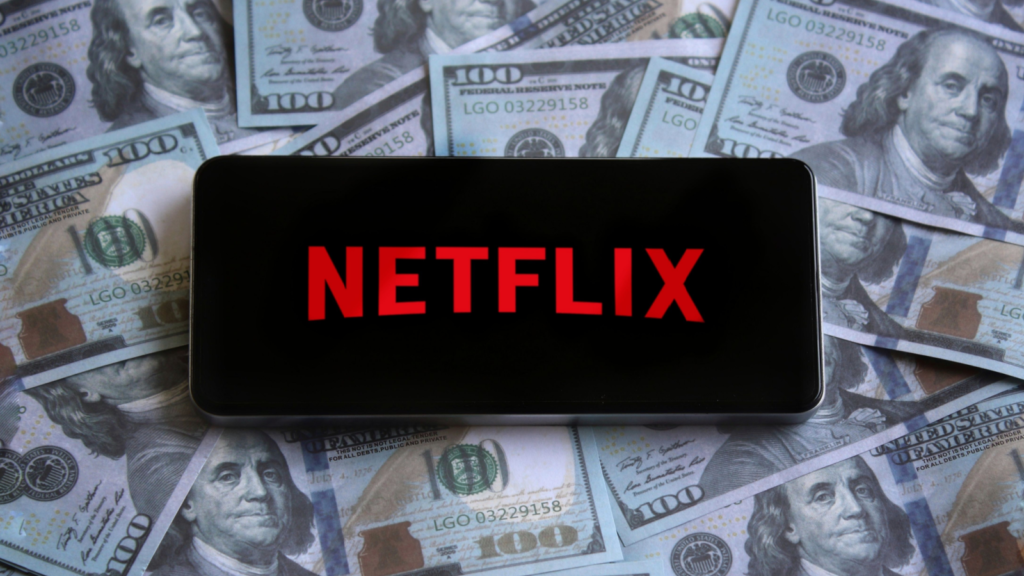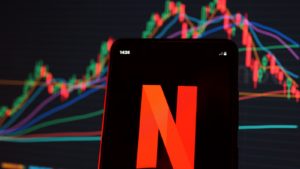
For content-streaming stalwart Netflix (NASDAQ:NFLX), the end of the contentious Hollywood writers’ strike couldn’t have come soon enough. As InvestorPlace contributor Marie Brodbeck mentioned, Netflix stock “is reliant on great content to stay afloat, so the strike’s end is a big deal for this streamer.” That’s simply and beautifully put.
It’s not just a matter of opinion. In the trailing six months, Netflix stock gained nearly 31% of equity value. With the resolution of the strike, the action removed a major restrictor plate stymieing the streaming giant. At the same time, writers going back to work should be a lifeline for cineplex operator AMC Entertainment (NYSE:AMC).
While AMC warned stakeholders of lower revenue ahead of its first-quarter earnings disclosure, management issued a silver lining: once the slate of new movies improves, the company should be back in business. And that’s a reasonable thesis on paper because of the aforementioned strike’s resolution.
However, the problem is that AMC just hasn’t moved – in the right direction, that is. In the past six months, the security is down almost 39%. Even at the peak closing price of AMC’s recent meme-fueled rally, it would have fallen short of the Nov. 20 closing price of $7.16.
Unfortunately, the dichotomy may continue to worsen for AMC while improving for Netflix stock.
Consumer Behaviors Shines a Light for Netflix Stock

According to data compiled by Statista, as of May 2022, approximately 55% of surveyed adult Internet users stated that they “rarely or never went to the movies” due to being more interested in watching films at home. That’s a huge plus for Netflix stock. At the same time, this behavioral shift is obviously a headwind for AMC and the cineplex business model.
To be sure, the movie theater isn’t completely obsolete or irrelevant – far from it. When people want to watch summer blockbusters, nothing beats the immersive experience of the big screen. However, this narrative has lost momentum. Here’s what I had to say about the matte recently:
In terms of top lifetime grosses, Box Office Mojo reveals that most of the top 20 films stemmed from the pre-Covid-19 era. The best-performing post-pandemic film was 2021’s Spider-Man: No Way Home. Notably, the wildly popular and much-anticipated film Top Gun: Maverick — released in 2022 — only came in at number five.
Only five of the top 20 grossing films of all time were released after Covid-19. Interestingly, the original Avatar — released in 2009 — occupies the number four slot, while its 2022 sequel, Avatar: The Way of Water, landed at number seven.
Unless the slate of upcoming films is projected to be groundbreaking, it’s doubtful that Hollywood alone can help AMC stock.
To be clear, I’m not here to pick on AMC. However, its closest rival Cinemark (NYSE:CNK) saw its shares gain nearly 25% in the trailing six months. And even then, the overall performance of CNK has been uninspiring, gaining about 5% in the past 52 weeks.
Bottom line, unless the cineplex operators can address the behavioral shift, Netflix stock may continue rising at their expense.
Inflation Also Splits Fortunes in the Entertainment Battle

For both businesses and consumers, inflation stinks. However, within the former category, the one comfort that companies have is that if they’re feeling the pressure of accelerating prices, their rivals are too. That’s almost always the case – except when we’re talking about Netflix stock.
While it has become commonplace in the post-pandemic environment to complain about skyrocketing costs, one arena has completely bucked the trend: television sets. They’re getting bigger and cheaper. As a December 2023 CNN report mentioned, some 55-inch TVs are selling (at full price) for under $250.
For a few hundred bucks more, you can get 70-inch TVs at popular big-box retailers. It’s no wonder why people prefer to watch movies at home. Increasingly, technology and economies of scale are enabling everyday folks to bring the big-screen experience to their living rooms.
So, with Netflix stock, inflation is great for the underlying business. First, people are able to acquire ridiculous deals on TVs. Second, this framework means that people are incentivized to stay at home to enhance the return of their TV purchases.
On the other hand, inflation is a substantial challenge for the cineplex industry. The biggest concern here is the rise in ticket prices. It’s a tough situation because the box office has to make money. But as it becomes more expensive to go to the movies, getting a relatively cheap Netflix subscription – helped by the fundamentals of cheap TVs – makes increasingly more sense.
Therefore, even on outside matters like inflation and consumer electronics, Netflix stock wins and the classic Hollywood machinery loses.
The Takeaway: Life Favors NFLX Stock
With streaming becoming so popular, NFLX stock already enjoyed a major advantage over the traditional box office. However, outside circumstances such as shifting consumer behaviors and even monetary policy have served to help Netflix while simultaneously imposing headwinds against troubled cineplex operators. Unless classic Hollywood does something drastic to change its business model, NFLX will likely continue winning.
On the date of publication, Josh Enomoto did not have (either directly or indirectly) any positions in the securities mentioned in this article. The opinions expressed in this article are those of the writer, subject to the InvestorPlace.com Publishing Guidelines.






